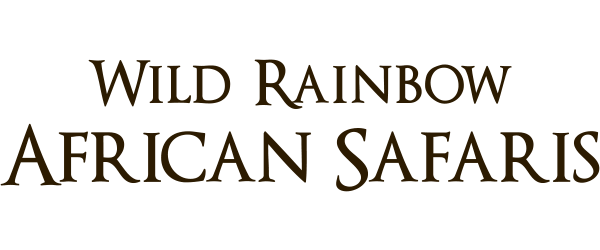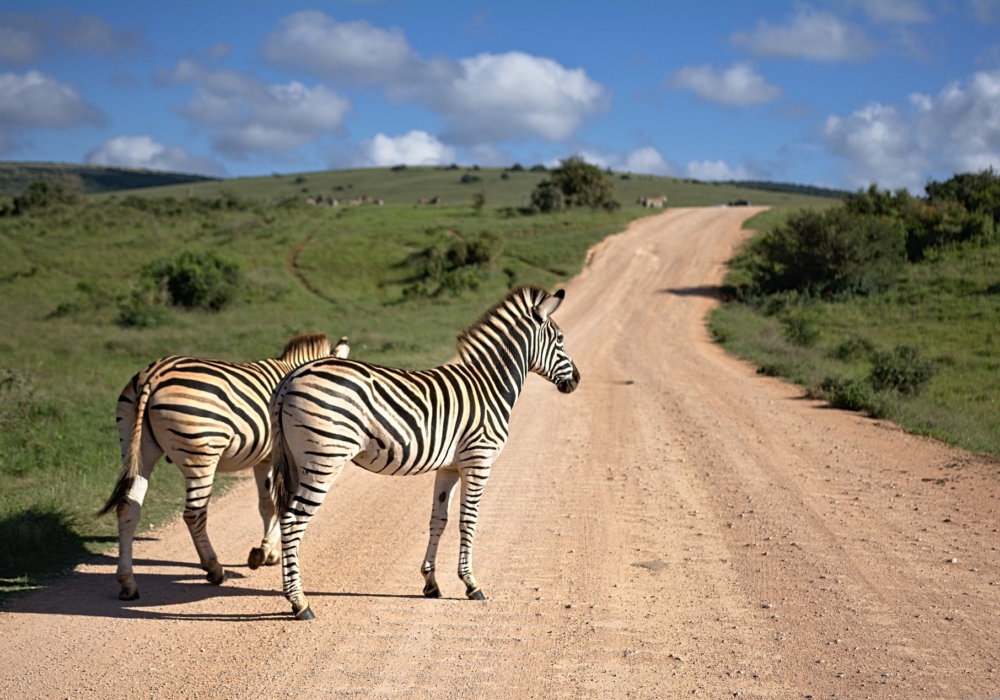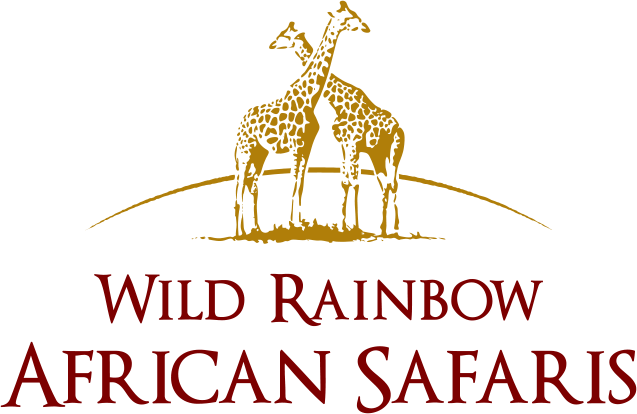Planning travel mid-pandemic is a bit confusing, overwhelming and frustrating, to say the least. And if you’re planning an excursion outside of the country, to places like Africa, it can feel downright scary! That’s why we’re here to help!
If you’ve been dreaming of an African Safari but aren’t sure if it’s safe to plan your travels yet, then review the updates below so you know what’s going on with travel to and from Africa during COVID-19.
Updated 2021/06/29
Notes:
Flying to/from Africa
Most international commercial airlines require passengers to produce a certificate of a negative COVID-19 PCR test that has been conducted within 72 hours of departure. The same may be required when arriving at any transit airport or back in your home country. Many of our trusted suppliers throughout Africa are able to arrange in-lodge/hotel COVID-19 tests or transfer you safely to an authorized testing facility. We are here to help you make your travels as seamless as possible.
Travelling to Africa After Getting the COVID-19 Vaccine
Now that a COVID-19 vaccine is becoming available, many potential travelers are asking if they’ll be required to undergo COVID-19 tests and follow the current health and safety protocols when travelling to Africa after getting the vaccine. The answer remains unclear, as experts still need to learn more about the protection that a COVID-19 vaccine provides under real-life conditions. We are keeping abreast of developments in travelling after being vaccinated and will provide updates when we have clear and conclusive information.
Botswana
UK Air Bridge Approved Since 12 December 2020
Botswana started a phased reopening of international borders from 9 November 2020. Air travel resumed at Sir Seretse Khama International Airport in Gaborone, Maun and Kasane International Airports.
Health screening & COVID-19 protocols on arrival
- Present a printed original test certificate of a negative COVID-19 PCR test result, conducted within 72 hours of departure for Botswana.
- Undergo health screening for COVID-19 symptoms.
- If arriving at Maun Airport, a Rapid Antigen Test (free of charge) is required. Results are available after about 15 minutes.
- Complete a traveler locator form with accurate contact information while in Botswana so that the local Health Authority can contact you, if necessary, within 14 days.
Mandatory quarantine
Any visitor showing symptoms of COVID-19 will be required to undergo a PCR test, and possible isolation and or quarantine for 14 days.
All passengers arriving from or transiting through India:
- Required to quarantine (at own cost) at a site selected by the Ministry of Health & Wellness for a period not exceeding 10 days.
- Undertake an exit COVID-19 test (at own cost) from day 5 to 7 to determine the end of their quarantine period.
Health screening & COVID-19 protocols on departure
Travelers are required to undergo a PCR test 24 hours before departing Botswana. This can be done via one of two options:
- Option 1: Arrange in-camp testing – a qualified practitioner is flown to your camp or lodge to conduct a PCR test. This has to be booked 36 hours in advance, online bookings are essential, and a minimum of two guests is required. Guests are liable for all costs.
- Option 2: Do the PCR test in Maun or Kasane Airport – bookings are essential. Your Africa Safari Expert can arrange this for you. Test results are available within 24 hours.
Kenya
Approved & Recognized User of the World Travel & Tourism Council’s (WTTC) Safety Stamp
Health screening & COVID-19 protocols on arrival
Before arriving in Kenya, passengers are required to submit their COVID-19 test certificates to generate a Trusted Travel (TT) code. Click here to create a TT account, upload PCR test certificates, and generate a TT code.
- A negative COVID-19 PCR test certificate is required, obtained no later than 96 hours prior to departure from your home country.
- Body temperatures must test below 37.5°C (99.5°F) and visitors must have no persistent cough, no difficulty breathing, and no other flu-like symptoms.
- If there is a reported case of COVID-19 on a flight or if the above symptoms are detected, all passengers within two rows of the passenger with the symptoms will be quarantined for testing at designated airport hotels. If the test results are negative, they will be allowed to leave the facility.
- It is mandatory for all passengers arriving in Kenya to complete the Travelers Health Surveillance Form by the Ministry of Health online prior to disembarkation. Passengers will receive a QR code after completing the form and will be required to display it to a Port Health Official to proceed through immigration.
- Strict infection prevention and control measures have to be followed: social distancing, good hand hygiene, and the wearing of masks remain mandatory.
Mandatory quarantine
- Passengers arriving on international flights from countries that are not on the approved list exempted from quarantine are required to quarantine for 14 days at their own cost.
- See the list of countries exempt from mandatory quarantine.
Health screening & COVID-19 protocols on departure
- Passengers departing Kenya are required to have a Trusted Travel (TT) code for their COVID-19 test certificates if their destination countries, airlines or transit airports require PCR tests. Visit www.africacdc.org/trusted-travel to check the test requirements of transit and destination countries.
- See a list of laboratories that have been approved to carry out COVID-19 PCR tests and issue certificates and TT codes.
Namibia
UK Air Bridge Approved Since 12 December 2020
Namibia announced new implementation protocols that will guide the country’s international tourism revival initiative. These protocols came into effect from 1 September 2020.
Open for international travel
- Yes
Health screening & COVID-19 protocols on arrival
- Present a negative COVID-19 PCR test result, conducted within 7 days of arriving in Namibia.
- Travelers arriving from predetermined hotspots like India are required to take a second PCR test seven days after arriving in Namibia.
- Undergo health screening and temperature testing.
- Submit your full trip itinerary.
Mandatory quarantine
- Not required, unless a traveler’s PCR test is older than 7 days.
- If PCR test is older than 7 days, a traveler will be placed in quarantine for 7 days and required to take a COVID test at own cost.
Health screening & COVID-19 protocols on departure
- A negative COVID-19 test certificate, conducted within 48 hours of departing Namibia, if your country of origin requires it.
Hey Rwanda
Approved & Recognized User of the World Travel & Tourism Council’s (WTTC) Safety Stamp
Tourism activities across the country resumed from 17 June 2020 and Rwanda’s airports reopened for scheduled commercial flights on 1 August 2020. Kigali International Airport is a member of the Airport Health Accreditation Programme by Airports Council International (ACI).
Open for international travel
- Yes
Health screening & COVID-19 protocols on arrival
- Provide a negative COVID-19 test certificate. The only accepted test is a SARS-CoV 2 Real Time Polymerase Chain Reaction (RT-PCR), performed within 72 hours of departure for Rwanda. Other tests such as Rapid Diagnostics Tests (RDT) are not accepted.
- Complete the Passenger Locator Form and upload your COVID-19 test certificate via www.rbc.gov.rw/travel prior to arrival.
- If you are visiting any national park in Rwanda, except Akagera, you are required to schedule your visit within 72 hours of receiving a negative PCR test result. Tourists visiting Akagera National Park are required to take a Rapid Antigen Test, available at numerous clinics in Kigali. If your visit/s are more than 72 hours after the initial test on arrival in Rwanda, you will be required to take another COVID-19 test before visiting the parks.
- Follow preventive measures while travelling in Rwanda: physical distancing where possible; the wearing of masks is mandatory; and temperature screenings before entering certain buildings are mandatory.
- All travelers departing from Rwanda must test negative for COVID-19, with the RT-PCR test performed within 72 hours before departure.
Mandatory quarantine
- All travelers arriving in Rwanda will be screened upon entry and take a second RT-PCR test to confirm the negative results of the test done prior to arrival. You will be required to wait about 24 hours for these test results in a designated transit hotel. The Government of Rwanda has negotiated special rates at designated transit hotels for the 24-hour waiting period.
- All travelers arriving from India and Uganda are required to quarantine for 7 days at a designated transit hotel at own cost.
South Africa
Cape Town is an Approved & Recognised User of the World Travel & Tourism Council’s (WTTC) Safety Stamp
South Africa announced on 16 September 2020 that the country’s borders will reopen for tourism on 1 October 2020.
International and local air travel is restricted to and from OR Tambo International Airport, King Shaka International Airport, Cape Town International Airport, Kruger Mpumalanga International Airport and Lanseria International Airport. OR Tambo, King Shaka and Cape Town airports are members of the Airport Health Accreditation Programme by Airports Council International (ACI).
Open for international travel
- Yes
Health screening & COVID-19 protocols on arrival
- Download, print and complete the Traveller Health Questionnaire (Entry) not more than 2 days before arrival. The same applies when leaving South Africa.
- Provide a valid, printed certificate of a negative COVID-19 PCR test, obtained not more than 72 hours (3 days) from the time of departure for South Africa. The test must be conducted by a certified medical practitioner and the certificate must have the name and signature of the practitioner who conducted the test.
- Undergo screening for any COVID-19 symptoms and/or for contact with people who have been infected with the virus.
- Download the COVID Alert South Africa mobile app.
Mandatory quarantine
Not required unless:
- Arriving passengers fail to present a valid and negative COVID-19 PCR test. This will require quarantine at own cost.
- Travelers display any symptoms of COVID-19 or have been in contact with an infected person. A mandatory COVID-19 test will be required at their own cost. If this test result is positive, travelers will be subjected to a 10-day quarantine at a designated site, at their own cost.
Health screening & COVID-19 protocols on departure
- Download, print and complete the Traveller Health Questionnaire (Exit) not more than 2 days before departure.
Tanzania
Approved & Recognized User of the World Travel & Tourism Council’s (WTTC) Safety Stamp
The government of Tanzania announced on 18 May 2020 that it will lift the ban on international flights arriving and departing from the country. All hotels and other tourist facilities in the country must go through a COVID-19 certification process, and official documents must be placed at the entrances of all facilities. The Tanzanian government has also directed all the country’s tourism entities to appoint and adequately train COVID-19 liaison officers to be the point of contact with its Health Ministry.
Open for international travel
- Yes
Countries allowed to travel to the destination
- All, except India.
Health screening & COVID-19 protocols on arrival
- All travelers (including children) are required to complete a Traveller’s Health Surveillance Form, to be submitted within 24 hours before arrival in Tanzania. Upon submission, you will receive a Unique Health Code that will be requested during primary screening on arrival.
- Present a negative RT-PCR COVID-19 test certificate, obtained within 72 hours of arriving in Tanzania.
- Undergo enhanced screening for COVID-19, including rapid testing at USD 25 per traveler.
- While in Tanzania, visitors will be expected to adhere to full protective measures against the spread of COVID-19.
Mandatory quarantine
- Not required.
Uganda
Uganda released a tentative phased reopening schedule for all its land borders and the resumption of international passenger flights to Entebbe International Airport, effective 1 October 2020.
Open for international travel
- Yes
Countries allowed to travel to the destination
- As from 1 May 2021, all flights and passengers arriving from India (Category 1) will not be allowed entry into Uganda. Flights and passengers arriving from any other country (Category 2 & 3) are allowed entry into Uganda.
Health screening & COVID-19 protocols on arrival
All arriving passengers (Category 2 & 3):
- Provide a negative COVID-19 PCR test result from an accredited laboratory in your country of origin, issued within 120 hours of departure for Uganda.
- Undergo temperature checks and health screening on arrival.
- Wear masks, maintain a social distance of 1.5 meters (5 feet) where possible, and practice good personal hygiene.
Category 2 passengers:
- All travelers arriving from USA, United Kingdom, United Arab Emirates, Turkey, South Africa, Ethiopia, South Sudan, Kenya and Tanzania will have to undergo a PCR COVID-19 test at their points of entry, including Entebbe International Airport.
- Travelers will be transferred by bus to Peniel Beach Hotel, located about 1.2 miles (2 kilometers) from the airport, where PCR testing is done. The Ministry of Health has signed an agreement with the private sector to carry out this exercise in a comfortable environment, and provide test results within 4 hours. The PCR test will cost USD 65 per traveler.
- Travelers who have completed a full COVID-19 vaccination course are exempt from additional PCR testing on arrival.
Category 3 passengers:
- All arriving passengers from countries not in Category 1 and 2 are exempt from additional COVID-19 protocols listed above.
All departing passengers:
- Arrive at the airport at least four hours before their scheduled flights.
- Present a negative COVID-19 PCR test result, issued within 120 hours of departing from Uganda, even if the destination country does not require it. If the destination country requires a negative test result in less than 120 hours, the destination country’s time frame takes priority.
- Undergo temperature checks and health screening.
Mandatory quarantine
- Not required. Passengers who exhibit signs and symptoms of an infectious disease will be transported to an isolation center for a COVID-19 test. Results will be available within 24 to 48 hours. If foreign nationals test positive for COVID-19 and wish to be repatriated to another facility outside Uganda, they can do so at their own cost and according to COVID-19 medical evacuation protocols.
Zambia
Zambia is open to foreign nationals and issuing visitor visas upon entry into the country. Depending on your nationality, travelers can arrive without a visa, obtain a visa on arrival, or apply for an e-visa before travelling to Zambia – visit the Zambia Department of Immigration website for more info. Limited domestic flight schedules are operating twice-weekly between Kenneth Kaunda International Airport and Mfuwe International Airport, and between Kenneth Kaunda and Harry Mwanga Nkumbula International Airport in Livingstone.
Open for international travel
- Yes
Health screening & COVID-19 protocols on arrival
- Provide a certificate of a negative COVID-19 test that has been conducted within 72 hours of arriving in Zambia.
- Adhere to COVID-19 regulations like physical distancing, wearing face masks, and personal hygiene. You will also need to monitor yourself daily for 14 days post arrival for symptoms of the virus and report any occurrence to the nearest health facility.
- Travellers leaving Zambia will only be required to produce a negative COVID-19 test certificate when flying with an airline or to a country that requires said certificate.
Mandatory quarantine
- All international visitors are screened on arrival. If you show any signs of COVID-19, you will have to quarantine for 14 days.
Health screening & COVID-19 protocols on departure
Obtain a Travel Certificate from the Ministry of Health, originating from Zambia, if your destination or airline requires a COVID-19 test certificate. To obtain a Travel Certificate, travelers must present their passports and COVID-19 test results at one of these offices:
- University Teaching Hospital (UTH)
- District Health Office (DHO)
- Public Health Office (PHO)
- Zambia National Public Health Institute (ZNPHI)
- Adult Infectious Disease Center (AIDC) at UTH
Zimbabwe
Zimbabwe announced the reopening of the country’s local tourism sector on 3 September 2020. Domestic flights resumed on 21 September 2020 with Air Zimbabwe and Fastjet, in advance of 1 October 2020: the reopening date of Zimbabwe’s international airports.
The government instituted a national lockdown until 1 March 2021 and a curfew from 20:00 to 05:30. Air travel remains open for leisure travelers, but land borders are only open to returning residents and essential services – including commercial and transit cargo carriers. Inter-city and inter-provincial holiday travel, as well as visiting national parks and designated tourism facilities are allowed, but will be bound by the country’s curfew hours. Visitors who are travelling between destinations are required to provide documentation of bookings at national parks and other designated tourism facilities. Hotels and lodges in Zimbabwe are exempted from the mandatory lockdown business closures.
Open for international travel
- Yes
Health screening & COVID-19 protocols on arrival
- Present a negative COVID-19 PCR test certificate, obtained from a recognized facility within 48 hours of departure for Zimbabwe.
- Undergo health screening and temperature testing.
- Social distancing, hand sanitization and the wearing of masks are mandatory.
Mandatory quarantine
- Not required unless travelers show symptoms of the virus or don’t have a negative COVID-19 PCR test certificate on arrival – they are then required to stay at a designated isolation facility for 7 days, then self- isolate for another 7 days. A fee of $60 will be levied on travelers tested at ports of entry.
Ready to Start Planning Your Trip of a Lifetime?
For 17 years we have successfully navigated various crises and global disruptions, and are committed to creating once in a lifetime trips while supporting conservation, communities and sustainability in Africa, now more than ever. Health and safety protocols are excellent throughout the continent: sanitizer stations, temperature checks, social distancing and the wearing of masks are standard practices. But the real beauty of Africa lies in its remote safari destinations, far away from any crowds.
If you feel ready and comfortable, Africa is ready for you. Get in touch with us to help tailor-make a trip that’s right for you!
Check back for updates! And feel free to contact us directly if you want to book your next trip, but have questions first.
Information credit: go2africa.com









